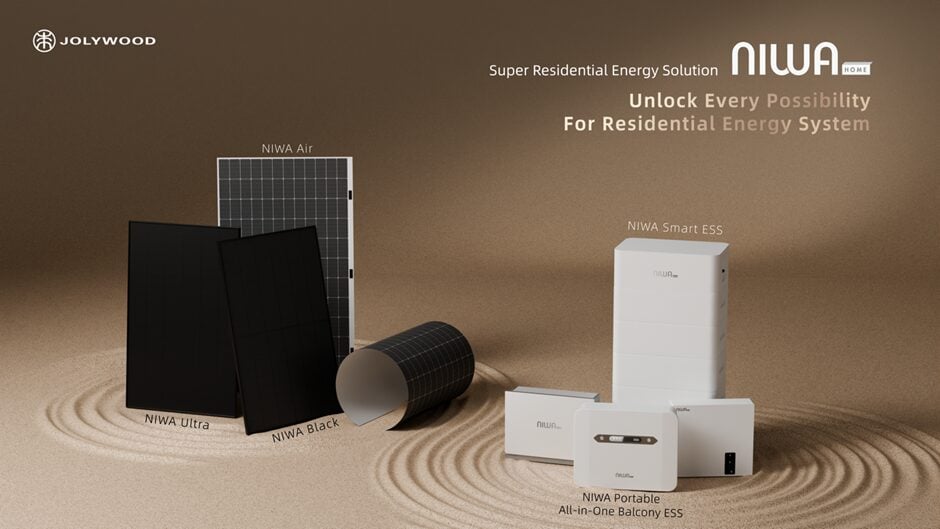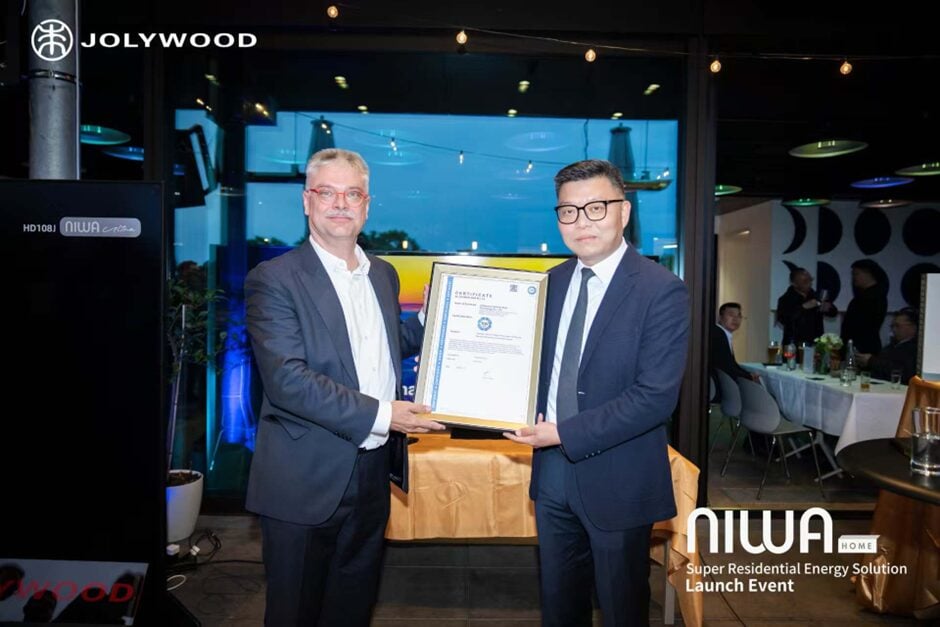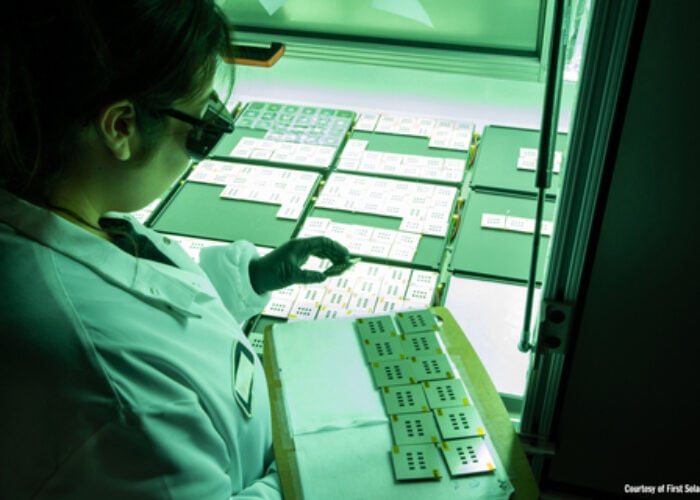
At Intersolar in Munich last month and the recent SNEC in Shanghai, Jolywood, a leading manufacturer of n-type PV modules, officially launched the latest innovation under its Niwa brand. The NIWA HOME Super Residential Energy Solution is an all-in-one energy system, combining PV modules, energy storage and an intelligent energy management system. PV Tech caught up with the company’s vice president Chris Zou to get the lowdown.

PV Tech: What is Jolywood showing at this year’s show, and what does this say about where you’re going as a company?
Try Premium for just $1
- Full premium access for the first month at only $1
- Converts to an annual rate after 30 days unless cancelled
- Cancel anytime during the trial period
Premium Benefits
- Expert industry analysis and interviews
- Digital access to PV Tech Power journal
- Exclusive event discounts
Or get the full Premium subscription right away
Or continue reading this article for free
Chris Zou, Jolywood: In Jolywood we are focused on PV cells and PV modules. In fact, we were among the firsts to mass produce TOPCon cell as early as in 2018. Today, TOPCon is mainstream, and most companies are producing it. The situation urges us to not only stick to one technology, one product, as we are not intending to compete with others on larger scale or lower price. In 2022 we launched our brand, named NIWA – NIWA comes from the Tibetan word for God of Sun. Our previous NIWA products included only modules, but now, we are thinking of changing from a static module manufacturer to a total solution provider. This is in our company DNA; in China, we have already been doing project development for many years, from residential projects to commercial and big utility-scale projects. Jolywood has been involved as project developer and EPC (engineering, procurement and construction) and then selling those assets to financial investors. During this period, we accumulated a lot of experience in things like system design and supply chain management. And so we began to think, why don’t we offer a total home solution to European customers as well?
What form has this new offering taken, and what are its core components?
We call it the NIWA Home Super Residential Solution. It includes a series of our modules, the inverter and the energy storage system (ESS). You can mix and match specific combinations to suit your needs. The hardware part is just a beginning; to build an effective home energy ecosystem, you will need a good energy management system, not only managing your PV system and your ESS system, but also your EV charger, your heat pumps and other household appliances. Only when each hardware part coordinates under the smart functions of a software hub can your home energy system be maximised to its best potential. With artificial intelligence technologies, it becomes much easier to manage energy automatically according to your energy consumption habits and the interface between your home energy system and the grid.
What sets the NIWA Home system apart from other all-in-one offerings?
The key idea about the system is the “3S”. One is ‘Safer’, which has the top priority, as it will be used in people’s homes. Another is ‘Simpler’, simpler for customers to make their own combinations, and simper in terms of management and operation. And the third is ‘Smarter’ – this includes the artificial intelligence technologies engaged to drive the system.
This all sounds like a more complicated proposition from a manufacturing perspective than simply selling modules. What external expertise have you had to tap to bring this home system to fruition?
As I mentioned, in our company DNA, we already have many key resources as a company from our project development and EPC work in China. We already have the accumulated knowledge and knowhow for how to build up a system like this: how to do the quality measurement of the components, for instance, for the inverter, for the ESS, and also how to do the maintenance of the solar system, because we’re also doing the O&M in China for residential and commercial projects. This experience helps us a lot with this new system.
Another part is having the right software systems. We are managing 5GW of projects in China, and 4GW of that is residential projects. It’s not like we are doing this manually! A very strong IT system is behind this. We are migrating this IT ability to the European market. Due to information protection directives in Europe, we have to build a Cloud system in Europe separately. We have our research teams in Shanghai and in Hangzhou. Hangzhou is the headquarters of [e-commerce giant] Alibaba, and there are many AI companies there. We have a cooperation with one team in Hangzhou, which is providing us with an AI solution. That’s why we’re quite confident about this smart system.
How important is your existing presence in Europe to getting this new system off the ground?
We’ve already been doing business in Europe for years and have built wide networks of business partners, which will support us in promoting our new home system. And through this local network, we will also be able to quickly get valuable feedback from the end users.
What are your plans for rolling this out?
We are currently in the launch phase and are still refining the system. We expect to officially begin delivering and selling NIWA Home solution in the European market by late Q3 – likely September – or early Q4.






